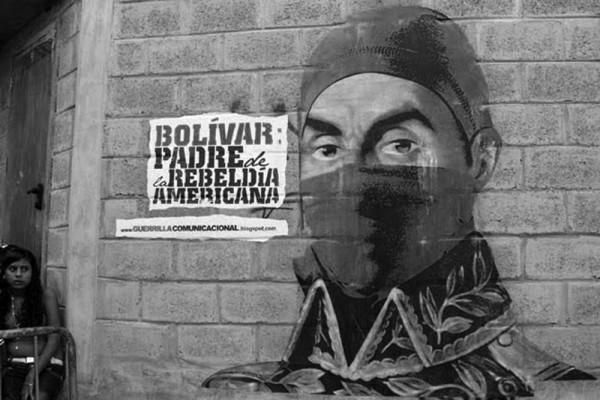The Chávez Code
Review: Cracking U.S. Intervention in Venezuela
by Eva Golinger
Olive Branch Press, 2006
“Golinger shows the incontrovertible facts of Washington’s attempt to overthrow the government of Hugo Chávez….”
– from the foreword by Saul Landau
When President Hugo Chávez spoke to the UN General Assembly he held up Chomsky’s Hegemony or Survival: The Imperialist Strategy of the United States. He said, “It’s an excellent book to help us understand what has been happening in the world throughout the twentieth century, and what’s happening now, and the greatest threat looming over our planet…. The hegemonic pretensions of the American empire are placing at risk the very survival of the human species. We continue to warn you about this danger and we appeal to the people of the United States and the world to halt this threat….”
Next time at the UN, he may well recommend Golinger’s book as a specific example of Chomsky’s thesis. She has written a well-documented case study of U.S. intentions to destroy Venezuela’s democratically elected government.
Golinger gives a passionate and meticulous presentation of a few recent years, which historians may one day see as the pivotal period of Latin American history – a time when U.S. power throughout the hemisphere began to crack and when Canadians have many concerns about “deep integration” with the U.S.
Eva Golinger, a Venezuelan-American lawyer, slogged through bureaucracy and archives for years. Through the U.S. Freedom of Information Act she acquired the evidence that U.S. government agencies and their front groups had participated in the short-lived effort to overthrow Chávez and his government (they call it “funding democracy”). Even USAID, supposedly a humanitarian and development fund became “a fund for the CIA to dip into for covert interventions.” The proof in extensive appendices is there to read; her concise analysis links this evidence to the actual events. But Golinger cautions us that she is still working on collecting evidence and that the full extent of U.S. involvement is yet to be revealed.
She goes back to early Venezuelan history, the country’s rise as an oil producer and its various elected governments, which, in spite of corruption, did manage to create some social infrastructure with oil money. She recalls previous U.S. interventions, reminding us of the Chilean coup and the Contra war against Nicaragua’s Sandinistas; she takes us, year by year, month by month, day by day and even hour by hour through the attempt to overthrow democracy in Venezuela.
Venezuela’s government threatens U.S. hegemony particularly because it is, “the fourth largest supplier of petroleum in the world … a national security interest for the USA.”
The U.S. is opposed to a government that rejects neoliberalism, befriends Cuba, revitalizes OPEC and focuses on policies to reduce poverty (at home and abroad), spreads its influence wide and far, and promotes participatory democracy. Wealthy Venezuelan elites (at home and in Miami) unhappy with these policies and trends embedded themselves with Washington and were instrumental in the U.S. plot to overthrow Chávez. Even the Canadian government has used our taxes, through CIDA, to fund an anti-democracy group, SUMATE. There is no way the U.S. and its friends have given up on Venezuela; it is a case study for U.S. intervention. Chávez, his government and friends, including Golinger, are still in danger.
This article appeared in the Indigenous Lands and Rights issue of Canadian Dimension .










